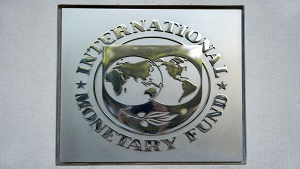Israel has pounded Iran over the past six days to halt its nuclear activity and has asserted the need for a change of government in the Islamic Republic.
The US military is also bolstering its presence in the region, Reuters reported, sparking speculation of US intervention that investors fear could widen the conflict in an area replete with energy resources, supply chains and infrastructure.
Against this backdrop, the Dollar has found support as a safe haven, firming roughly 1% against the Japanese Yen, Swiss Franc and Euro since Thursday and helping it to shave declines from earlier in the year.
The greenback had lost more than 8% so far this year due to eroding confidence in the US economy due to US President Donald Trump's trade policies.
"The Dollar is still a safe haven because of its depth and liquidity, so, yes the structural forces are diluting the Dollar safe-haven activities, but they're not eroding them completely," said Currency Strategist Rodrigo Catril at National Australia Bank.
"But in a scenario of big risk aversion, the Dollar will still gain support but maybe not to the same extent it has managed in the past."
The Dollar wavered between small gains and losses against the Yen and had touched a one-week top in early Asia trading hours. The greenback was last down 0.2% and fetched 144.90 Yen.
The Swiss Franc was flat at 0.816 per Dollar and the Euro edged up 0.2% at $1.150.
A broader index tracking the greenback against six other currencies slipped 0.1% after a 0.6% jump in the previous trading session.
An increase in crude oil prices to about $75 a barrel has also weighed on the Euro and Yen given the European Union and Japan are primarily net crude importers as opposed to the US, which is a net exporter.
--Reuters--
Economy
- ${title}
Loading...
Economy
Dollar wobbles as investors monitor Israel-Iran conflict ahead of Fed decision

Date: Jun 18, 2025
The United States (US) Dollar wavered against most major currencies on Wednesday, as fighting between Israel and Iran left investors nervous ahead of a keenly awaited Federal Reserve decision on interest rates later in the day.
Web Content Viewer (JSR 286)
- ${title}
Loading...
ADVERTISEMENT
Economy
- ${title}
Loading...
Web Content Viewer (JSR 286)
- ${title}
Loading...











